The Third Pillar of Medical Education: Health Systems Science
In this introductory session, the core twelve domains of health systems science (HSS) will be defined and the historical evolution of HSS that has resulted in the development and implementation of HSS into medical education will be described. The necessary characteristics of health systems and providers that are grounded in HSS tenets will be discussed. This session will set the stage for the remainder of the series, which will more particularly address incorporation of HSS into undergraduate and graduate medical education, culminating in a final session describing challenges that have been faced.
Health Systems Science: The Pre-Clinical Years in Medical School
The US health care system is failing many patients and clinicians today. Medical education must be a part of the solution, as all future physicians need the knowledge and skills to lead and participate in innovations to improve outcomes. This webinar describes a unique partnership between undergraduate medical education and an academic health system that allows early medical students to learn health systems improvement by contributing to real-time efforts. It features medical educators and health systems leaders as well as inspirational stories of student learning and project impact.
Health Systems Science in the Clinical Clerkship Years
As Medical Schools integrate Health Systems Science into the curriculum, one of the areas that remain a challenge is the clinical years. Traditional clinical care has very little flexibility to incorporate HSS if approached with a pure scheduling lens. However, there are ample opportunities in daily workplace learning to recognize how HSS impacts clinical decision making and ultimately clinical care. In this session, the facilitators will share how they have or plan to incorporate and evaluate HSS in the clinical clerkship and demonstrate how SOAP-V is a great example of integrating clinical reasoning and value based care thus integrating clinical and health systems science at the bedside.
Objectives:
- To explore the ways in which HSS can be integrated into clinical clerkships
- To identify the use of HSS within clerkship evaluations
- To recognize how SOAP-V integrates clinical reasoning and value based care at the bedside
- To describe the impact SOAP- V had on medical students in the clinical clerkship years
Preparing Faculty to Teach HSS in the Clinical Learning Environment
In prior sessions of this series, participants learned about the development of the HSS and its critical role to student learning in modern healthcare as well as opportunities for implementing HSS into medical school curricula. In this session, participant learning will focus on varied roles faculty can play in enhancing (or hindering) student learning of HSS in the pre-clinical and clinical environment. The importance of faculty understanding and engagement in health systems priorities with the goal of achieving mutual benefit will be discussed.
The Broccoli of US Medical Education: Key Health Systems Science Challenges
U.S. Medical Schools are significantly changing curricula to meet the evolving needs of health systems by incorporating more Health Systems Science into their programs. Although much progress has been made over the past several years, significant challenges remain. The successful implementation of HSS is challenging due to the need for new curricula, novel assessments and evaluations within the workplace, the development of educators, resource allocation, and the receptivity and engagement by students and faculty in this learning agenda. In this session, the facilitators will articulate several of the key challenges facing Health Systems Science education, and suggest strategies to address these challenges. To fulfill the obligation of preparing the next generation of systems-ready physicians, the medical education community must develop a shared understanding of these challenges to catalyze change.
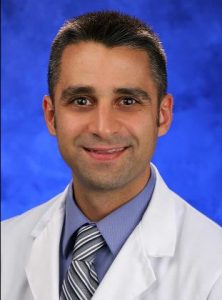 Dr. Jed Gonzalo graduated from the University of Scranton in 2002 (B.S. biology/philosophy), receiving the Frank O’Hara Gold Medal Award (awarded to the student with the highest GPA). Jed received his MD degree from the Penn State College of Medicine in 2006, being inducted into AOA Honor Society and chosen by his classmates as “Classmate you would most want as your physician.” He completed his internal medicine residency and chief residency at the Beth Israel Deaconess in Boston, where he was Instructor at the Harvard Medical School, and awarded the Lowell McGee Award, which is given to the resident who most demonstrates the “fundamental importance of teaching and to the spirit and substance of being a physician.” Following residency, Jed completed a fellowship at the University of Pittsburgh in General Internal Medicine/Medical Education, earning a Master of Science in Medical Education/Clinical Research.
Dr. Jed Gonzalo graduated from the University of Scranton in 2002 (B.S. biology/philosophy), receiving the Frank O’Hara Gold Medal Award (awarded to the student with the highest GPA). Jed received his MD degree from the Penn State College of Medicine in 2006, being inducted into AOA Honor Society and chosen by his classmates as “Classmate you would most want as your physician.” He completed his internal medicine residency and chief residency at the Beth Israel Deaconess in Boston, where he was Instructor at the Harvard Medical School, and awarded the Lowell McGee Award, which is given to the resident who most demonstrates the “fundamental importance of teaching and to the spirit and substance of being a physician.” Following residency, Jed completed a fellowship at the University of Pittsburgh in General Internal Medicine/Medical Education, earning a Master of Science in Medical Education/Clinical Research.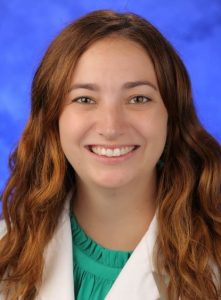 Ami DeWaters is currently an Assistant Professor of Internal Medicine and Assistant Director of Health Systems Science Education at Penn State Health. She completed her medical degree at Medical College of Georgia, her internal medicine residency at Penn State, and a general internal medicine fellowship at UT Southwestern. During her fellowship, she obtained a MSc, with a focus on medical education. She is clinically active as a hospitalist, and her education interests are focused on curriculum development in health systems science spanning across the continuum of medical education.
Ami DeWaters is currently an Assistant Professor of Internal Medicine and Assistant Director of Health Systems Science Education at Penn State Health. She completed her medical degree at Medical College of Georgia, her internal medicine residency at Penn State, and a general internal medicine fellowship at UT Southwestern. During her fellowship, she obtained a MSc, with a focus on medical education. She is clinically active as a hospitalist, and her education interests are focused on curriculum development in health systems science spanning across the continuum of medical education.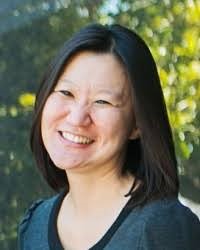 Anna Chang MD is Professor of Medicine at the University of California San Francisco School of Medicine. She received her MD from St. Louis University, completed her internal medicine residency at the University of California at Davis, and her geriatric medicine fellowship at the University of California San Francisco. Her clinical practice focuses on older adults and those near the end of life. Dr. Chang directs the Clinical Microsystems Clerkship, the clinical skills and health systems curriculum for first- and second- year medical students. She is the Associate Chief for Education in the Division of Geriatrics, Director of the Tideswell Emerging Leaders in Aging Program, and was awarded the Gold-Headed Cane Endowed Education Chair in Internal Medicine.
Anna Chang MD is Professor of Medicine at the University of California San Francisco School of Medicine. She received her MD from St. Louis University, completed her internal medicine residency at the University of California at Davis, and her geriatric medicine fellowship at the University of California San Francisco. Her clinical practice focuses on older adults and those near the end of life. Dr. Chang directs the Clinical Microsystems Clerkship, the clinical skills and health systems curriculum for first- and second- year medical students. She is the Associate Chief for Education in the Division of Geriatrics, Director of the Tideswell Emerging Leaders in Aging Program, and was awarded the Gold-Headed Cane Endowed Education Chair in Internal Medicine. Edgar Pierluissi MD is Professor of Medicine at the University of California San Francisco and Director of the Acute Care for Elders Unit at Zuckerberg San Francisco General Hospital. He received his MD from Harvard Medical School, completed his internal medicine residency and chief residency at the University of California San Francisco, and a quality improvement fellowship through the Veterans Affairs National Quality Scholars Program. He was the Vice President for Quality Improvement for the County of San Mateo, and a Master Clinician at the University of California San Francisco. Dr. Pierluissi has cared for vulnerable populations his entre career and is committed to health care quality improvement.
Edgar Pierluissi MD is Professor of Medicine at the University of California San Francisco and Director of the Acute Care for Elders Unit at Zuckerberg San Francisco General Hospital. He received his MD from Harvard Medical School, completed his internal medicine residency and chief residency at the University of California San Francisco, and a quality improvement fellowship through the Veterans Affairs National Quality Scholars Program. He was the Vice President for Quality Improvement for the County of San Mateo, and a Master Clinician at the University of California San Francisco. Dr. Pierluissi has cared for vulnerable populations his entre career and is committed to health care quality improvement.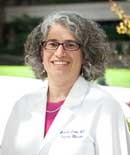 Adrienne Green MD is Professor of Medicine at the University of California San Francisco and Chief Medical Officer of UCSF Health. She received her MD from Hannemann University School of Medicine and completed her internal medicine residency at Stanford University Hospital. Dr. Green is responsible for alignment of all adult inpatient and hospital-based services with the mission and vision of UCSF Health and the academic missions of the UCSF campus. She is responsible for ensuring the highest level of quality, safety, efficiency, patient and provider experience, and for doing so in a fiscally responsible manner. As Vice President for Patient Safety and Accreditation, Dr. Green provides leadership and oversight for all accreditation activities at UCSF Health and is accountable for establishing and maintaining a culture of patient safety and leading the organization’s efforts to achieve zero harm to patients.
Adrienne Green MD is Professor of Medicine at the University of California San Francisco and Chief Medical Officer of UCSF Health. She received her MD from Hannemann University School of Medicine and completed her internal medicine residency at Stanford University Hospital. Dr. Green is responsible for alignment of all adult inpatient and hospital-based services with the mission and vision of UCSF Health and the academic missions of the UCSF campus. She is responsible for ensuring the highest level of quality, safety, efficiency, patient and provider experience, and for doing so in a fiscally responsible manner. As Vice President for Patient Safety and Accreditation, Dr. Green provides leadership and oversight for all accreditation activities at UCSF Health and is accountable for establishing and maintaining a culture of patient safety and leading the organization’s efforts to achieve zero harm to patients.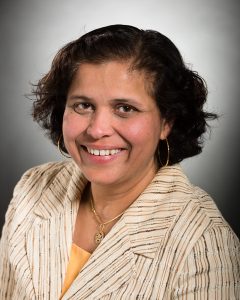
 Clifford D. Packer, MD, FACP is an internist and clinician-educator at the Louis Stokes Cleveland VA Medical Center, and Professor of Medicine at Case Western Reserve University School of Medicine. He is a long time medicine clerkship director and developed a case reporting curriculum with his students that has produced numerous published case reports and abstracts over the past ten years. He is the author of more than 40 peer-reviewed articles and two books, Writing Case Reports: A Practical Guide from Conception through Publication (Springer, 2017) with co-authors Gabrielle Berger and Somnath Mookherjee, and Presenting Your Case: A Concise Guide for Medical Students (Springer, 2019).
Clifford D. Packer, MD, FACP is an internist and clinician-educator at the Louis Stokes Cleveland VA Medical Center, and Professor of Medicine at Case Western Reserve University School of Medicine. He is a long time medicine clerkship director and developed a case reporting curriculum with his students that has produced numerous published case reports and abstracts over the past ten years. He is the author of more than 40 peer-reviewed articles and two books, Writing Case Reports: A Practical Guide from Conception through Publication (Springer, 2017) with co-authors Gabrielle Berger and Somnath Mookherjee, and Presenting Your Case: A Concise Guide for Medical Students (Springer, 2019).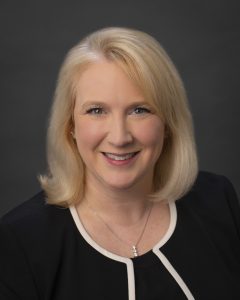 Luan E. Lawson, MD, MAEd, is the Associate Dean of Curricular Innovation in Medical Education and Associate Professor of Emergency Medicine at the Brody School of Medicine at East Carolina University. Her academic interests have focused on undergraduate education, with expertise in curriculum development, assessment, and team training. As the PI of the American Medical Association Accelerating Change in Education (ACE) grant resulting in East Carolina University’s Redesigning Education and Accelerating Change in Healthcare (REACH) program, the REACH team designed and implemented 1) the Teachers of Quality Academy faculty development program, 2) the Leaders in Innovative Care Distinction Track for medical students, and 3) a longitudinal curriculum in Health Systems Science. Her work with the AMA-ACE Consortium has focused on defining and codifying the principles of Health Systems Science (HSS) and developing curricula needed to teach these competencies to medical students and health care professionals. Dr. Lawson serves on the National Board of Medical Examiners Emergency Medicine Advanced Clinical Exam Task Force and is the immediate past-president of the Clerkship Directors of Emergency Medicine.
Luan E. Lawson, MD, MAEd, is the Associate Dean of Curricular Innovation in Medical Education and Associate Professor of Emergency Medicine at the Brody School of Medicine at East Carolina University. Her academic interests have focused on undergraduate education, with expertise in curriculum development, assessment, and team training. As the PI of the American Medical Association Accelerating Change in Education (ACE) grant resulting in East Carolina University’s Redesigning Education and Accelerating Change in Healthcare (REACH) program, the REACH team designed and implemented 1) the Teachers of Quality Academy faculty development program, 2) the Leaders in Innovative Care Distinction Track for medical students, and 3) a longitudinal curriculum in Health Systems Science. Her work with the AMA-ACE Consortium has focused on defining and codifying the principles of Health Systems Science (HSS) and developing curricula needed to teach these competencies to medical students and health care professionals. Dr. Lawson serves on the National Board of Medical Examiners Emergency Medicine Advanced Clinical Exam Task Force and is the immediate past-president of the Clerkship Directors of Emergency Medicine.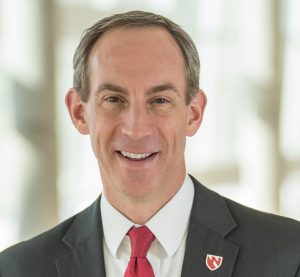 Kelly J. Caverzagie, MD, is Professor of Internal Medicine and serves as the Associate Dean for Educational Strategy for the University of Nebraska Medical Center (UNMC) where he was responsible for leading the implementation of the Training the Physicians of Tomorrow curriculum which launched in August 2017. He also serves as the primary investigator for UNMC’s participation in the American Medical Association (AMA) Accelerating Change in Medical Education (ACE) consortium.
Kelly J. Caverzagie, MD, is Professor of Internal Medicine and serves as the Associate Dean for Educational Strategy for the University of Nebraska Medical Center (UNMC) where he was responsible for leading the implementation of the Training the Physicians of Tomorrow curriculum which launched in August 2017. He also serves as the primary investigator for UNMC’s participation in the American Medical Association (AMA) Accelerating Change in Medical Education (ACE) consortium. Dr. Starr is a general pediatrician and Quality Chair in the Division of Community Pediatric and Adolescent Medicine, Mayo Clinic, Rochester, Minnesota. She has more than 20 years of curriculum development and leadership experience in medical education. She earned her MD degree at St. Louis University School of Medicine, completed pediatric residency and served in the United States Navy before coming to Mayo Clinic in 2000. She previously served as Vice-Chair for Education in the Department Pediatric and Adolescent Medicine, Assistant Medical Director of the Quality Academy, and as the pediatric pre-clinical course director and Chair, Student Promotions Committee, at the medical school. She is currently responsible for leading the school’s longitudinal Science of Health Care Delivery course on the Minnesota campus.
Dr. Starr is a general pediatrician and Quality Chair in the Division of Community Pediatric and Adolescent Medicine, Mayo Clinic, Rochester, Minnesota. She has more than 20 years of curriculum development and leadership experience in medical education. She earned her MD degree at St. Louis University School of Medicine, completed pediatric residency and served in the United States Navy before coming to Mayo Clinic in 2000. She previously served as Vice-Chair for Education in the Department Pediatric and Adolescent Medicine, Assistant Medical Director of the Quality Academy, and as the pediatric pre-clinical course director and Chair, Student Promotions Committee, at the medical school. She is currently responsible for leading the school’s longitudinal Science of Health Care Delivery course on the Minnesota campus.